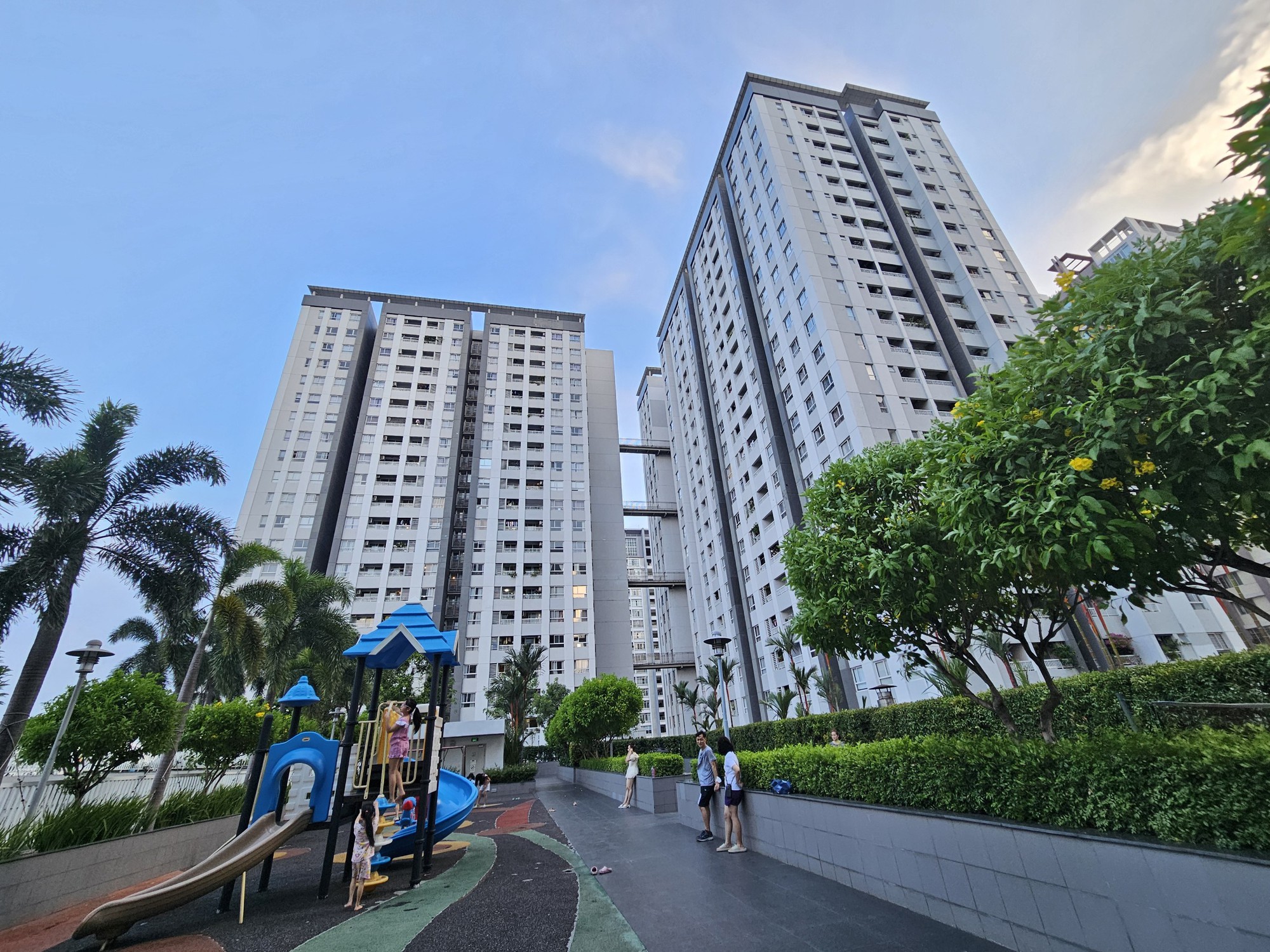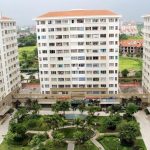As of June 2024, credit growth in Vietnam reached approximately 6%, according to the State Bank of Vietnam (SBV). While overall credit growth is promising, commercial banks are facing challenges in the real estate loan segment, which remains subdued.
Various Stimulus Measures
A credit officer at a joint-stock commercial bank in Ho Chi Minh City shared that he and his colleagues have been scrambling to find borrowers for real estate loans, including both investors and homebuyers, but they are falling short of the targets set by their superiors.
Over the past few months, commercial banks have continuously launched credit packages with attractive interest rates for homebuyers. For instance, Vietcombank, BIDV, and Agribank are offering loans for real estate purchases at interest rates as low as 5.5%–6% per annum for the first 6–12 months. Most recently, Sacombank introduced a preferential package of VND 10,000 billion with an interest rate of 6.5% per annum for customers looking to buy, build, or renovate houses. However, the actual credit growth in this sector has not met expectations.
Ms. Khanh Minh, a resident of District 11 in Ho Chi Minh City, has savings of approximately VND 4 billion and is considering taking out a bank loan to purchase a townhouse worth VND 5–7 billion to rent out. After researching several banks, she found the lending rates quite reasonable, with some banks even offering grace periods of 2–3 years, or up to 5 years for loans to purchase apartments with red books (land-use rights certificates). However, she and her husband are hesitant to make a decision as they perceive the real estate market as lacking momentum.
This cautious sentiment among potential homebuyers, awaiting a more robust recovery in the real estate market before investing, is one of the factors contributing to the stagnant growth in housing loans. Additionally, some real estate investors are already heavily invested in the market and are unable to sell their existing properties, reducing their demand for new loans.
Mr. Nhat Thinh, a resident of Thu Duc City in Ho Chi Minh City, shared his experience of investing in agricultural land in Binh Duong Province about three years ago, during a period of land fever. He and a group of friends pooled their money to purchase a plot of land worth over VND 20 billion, with Thinh taking out an additional bank loan of VND 4 billion. They were hoping to sell the land at a profit when prices rose.
“However, the real estate market has been stagnant for more than two years, and the value of our investment has not increased as expected. Instead, it has decreased. Every month, I have to pay the principal and interest on the loan, and when we try to cut our losses and sell, there are no buyers,” Thinh lamented.

Housing loan demand remains low due to limited supply and skyrocketing prices.
Expectations for Improvement
Mr. Trinh Bang Vu, Head of Retail Lending at Shinhan Bank Vietnam, analyzed the real estate credit segment from three perspectives: the demand for home purchases, housing prices, and the repayment capacity of borrowers.
Currently, the demand for home ownership among urban residents in Vietnam, especially in the two major cities of Ho Chi Minh City and Hanoi, is substantial. However, legal issues in the real estate sector have hindered the supply of new properties, leading to soaring prices that show no signs of cooling down.
“On another note, the income of Vietnamese citizens has improved significantly in the last five years, but it has not kept pace with the rapid growth in housing prices. Moreover, the economy has faced challenges in the last two years, impacting the income and purchasing power of Vietnamese citizens. Taking out a loan of several billion dong to buy a house would impose a significant debt burden on borrowers and their families, so banks cannot aggressively promote credit growth in this sector at this time,” said Trinh Bang Vu.
The Q2 2024 report on the real estate market in Ho Chi Minh City by JLL Vietnam showed that both the high-end apartment segment and the land market recorded modest transaction volumes, despite primary selling prices continuing to decrease compared to the previous quarter.
Ms. Trang Le, Senior Director of Consulting and Research at JLL Vietnam, stated that developers are offering various incentives, including price discounts, extended payment terms, and flexible payment methods, to stimulate demand. “The main reason for the subdued demand is the abundance of expensive inventory and the cautious attitude of buyers towards assets with low liquidity compared to apartments, given the uncertain economic environment,” she explained.
A leader of a joint-stock commercial bank in Ho Chi Minh City acknowledged that lending rates are not the primary issue affecting real estate credit growth. The key factor is that the real estate market’s liquidity has not recovered, causing idle funds to remain on the sidelines.
While the current situation presents challenges, both investors and experts remain optimistic about the market’s prospects in the second half of the year, especially with the implementation of new policies to support the real estate sector.
Mr. Nguyen Duc Len, Deputy Director of the State Bank of Vietnam’s Ho Chi Minh City Branch, analyzed: “Favorable factors such as low-interest rates, the ability of credit institutions to meet capital demands, the introduction of preferential credit packages for social housing, and the upcoming enforcement of the Real Estate Law and the Law on Housing and Real Estate Business, along with the concrete actions of task forces to address market difficulties, will provide a foundation and impetus for the real estate market to maintain its positive aspects, recover, and resume growth in the coming period.”
Lending Rates May Decrease Further
According to experts, lending rates could decrease further in the coming months, despite increases in input costs.
Ms. Bui Thi Thao Ly, Director of Analysis at Shinhan Securities, noted that Ho Chi Minh City is experiencing the lowest real estate supply in 15 years, resulting in a lack of available properties for sale. This is one of the reasons for the slow credit growth in the real estate sector, which has not met expectations.
On a positive note, from now until the end of the year, several enterprises will launch new projects, increasing supply and providing more options for investors. “Lending rates may decrease by 0.5 percentage points compared to the current rates to stimulate credit growth, and commercial banks will have to accept a slight decrease or maintain the net interest margin compared to last year,” Thao Ly said.
VPBank strengthens its system in 2023, laying the foundation for sustainable growth
By 2023, VPBank has made significant strides in expanding its customer base and scaling up its operations. The bank has managed to make progress amidst challenging macroeconomic conditions, focusing its resources on strengthening its system and building momentum for sustainable growth in 2024 and beyond.


















